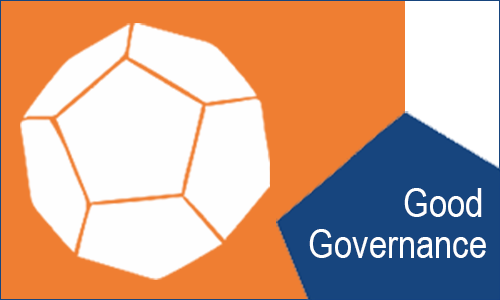 Specific projects in Albania
Specific projects in Albania
New project: Sustaining Public Administration Reform at Local Level in Albania
 What is the goal?
What is the goal?
- To develop the capacities of the Local Government Units for effective and uniform management of human resources in compliance with national legislation and standards.
- To strengthen institutional framework for the training and development of local officials and elected representatives.
- To strengthen good democratic governance at local level through peer learning, and coordination among municipalities and meaningful participation of citizens in democratic processes.
 Who benefits from the project?
Who benefits from the project?
- Public authorities such as the Ministry of Interior, Department of Public Administration (DoPA), Albanian School of Public Administration (ASPA), Agency for the Support of the Local Self Governance, Commissioner for the Oversight of Civil Service.
- Albanian municipalities, their staff, and institutional structures.
- Albanian citizens, civil society organisations and private sector who will receive better services from the municipalities` improved performance.
 How will the project work?
How will the project work?
The project will provide legal and policy advice based on Council of Europe standards and deliver capacity building programmes developed from the Toolkits of the Centre of Expertise for Good Governance. Activities will draw from best European practice and be specifically adapted to the local context to address the needs of the beneficiaries and build upon the outcomes of the previous intervention “Strengthening Local Government Structures in Albania.”
 What outputs will be delivered by the project?
What outputs will be delivered by the project?
- Functionalities of the administrata.al platform will be upgraded and updated, to support improved Human Resources Management (HRM) practice across Albanian public administration;
- Local HRM capacities developed through trainings and supported by helpdesk at DoPA;
- Pathways for more efficient and harmonised approaches to HRM at local level identified through piloting of intermunicipal cooperation arrangements;
- National Competency Framework for human resources developed following extensive Training Needs Assessment (TNA) of the Local government units (LGUs);
- Guidelines to promote inclusivity and meaningful participation of citizens in political decision making at local level adopted;
- National Democratic Accountability Framework for local elected officials and LGUs elected bodies, adopted in line with Council of Europe standards.
 Budget and duration
Budget and duration
The project is funded by the German Government and implemented by the Council of Europe Centre of Expertise for Good Governance
The total budget of the project is 700 000 EUR.
The project will run from 01 December 2022 to 31 December 2024.
Main activities:
- Strengthening Local Government Structures in Albania – Phases I-II-III
From January 2010 until December 2019, a series of projects implemented by the Centre of Expertise for Good Governance and funded by Swiss Development Cooperation have supported the public administration reform process in Albania and helped the country in the transition towards a more efficient and accountable public administration and decentralised territorial administration.
Council of Europe assistance has helped shape the legal framework for local self-government, establish the basis for inter-municipal cooperation, and contribute to the policy debate on territorial and public administration reform.
The projects have also helped develop tools, standards and indicators on modern human resources practices, strengthened the role of the Albanian School of Public Administration (ASPA) in training civil servants, built leadership capacities at local and central government level, and contributed to the establishment of the Consultative Council as a platform for exchange and dialogue between central and local authorities.
Project support in Phase III culminated in the launch in April 2019 of a standardised, interoperable online Public Administration Platform. The platform serves as a single point of access to all public administration institutions both central and local and has marked a transformation in the way human resources are managed in the Albanian public administration, thanks to its many functionalities.
A Council of Ministers’ decision of the Government of Albania in October 2020 has cemented the role of the platform across public administration in Albania as a key instrument for human resource management.
Previous projects:
- Reinforcing Local and Regional Government Structures - Albania – Phase I
Implementation period: January 2010 – March 2012
Key outputs:- IMC Baseline report delivered insightful analysis of the challenges to promoting intermunicipal cooperation.
- National assessment of human resources at local level in Albania led to introduction of modern HRM tools in pilot municipalities
- A comprehensive report on the “State of Local Democracy in Albania” identified key priority areas for further action.
- Strengthening Local Government Structures and cooperation between local elected officials in Albania – Phase II
Implementation period: 26 September 2012 – 30 June 2017
Key outputs:- Legal and policy advice based on Council of Europe standards informs comprehensive territorial administrative reform and legal framework for local self-government
- Complete census of local government workforce profile and training needs collated in web based platform for public administration at local level, e-PAV
- Strengthening Local Government Structures in Albania – Phase III
Implementation period: 1 August 2017 – 31 December 2019
Key outputs:- Public administration platform : www.administrata.al
Ms Albana Kociu is Director of the Department of Public Administration in Albania and a member of the Council of Europe’s European Committee on Democracy and Governance (CDDG). In this presentation she explains how the Public Administration Platform has helped Albanian public officials adapt to new working conditions and speaks about the additional measures she has introduced to help improve communication channels among officials operating in a common virtual workplace.
Public administration portal - for a modern and effective public administration
Strengthening local government structures in Albania – Final steering committee meeting
Legal, Ethical and Effective decision-making models in public service in Albania



